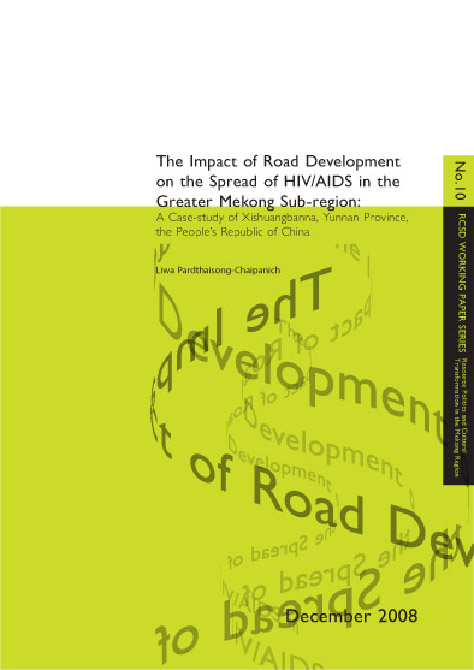A Case Study of Xishuangbanna, Yunnan Province, the People’s Republic of China
This study investigates an impact of road development on the spread of HIV/AIDS, by focusing on the male construction workers and female commercial sex workers in a township called Mengla in Xishuangbanna, Yunnan province, in the People’s Republic of China (PR China), where the last section of the R3E or Kunming to Bangkok road was still under construction during the time of this study. Primary data was collected in 2006 through in-depth interviews with eleven male construction workers and seven female commercial sex workers. Although HIV/AIDS was not obviously found in the sample population, being located in the Chinese HIV/AIDS epi-centre of Yunnan province, this place itself already has a high potential to be the ‘origin’, ‘passage’, and ‘destination’ of the transmission of any infectious diseases, including HIV/AIDS. This study points out that the closed sexual interactions between the male construction workers, who are also migrant workers, and the female commercial sex workers (CSWs), along with a limited knowledge of HIV/AIDS, a low level of self-protection and the unpopularity of condom use, has put these people in a very high ‘risk’ group for HIV/AIDS transmission, especially when one explores the complicated sexual networks which exist and which includes: regular partners, boyfriends, girlfriends, wives and children; as well as other clients of the CSWs, such as local men, businessmen and domestic and international tourists.
Publication date : March 2009
Price : 180 Baht / 7 US$
- THEME
- Mobility and Border

